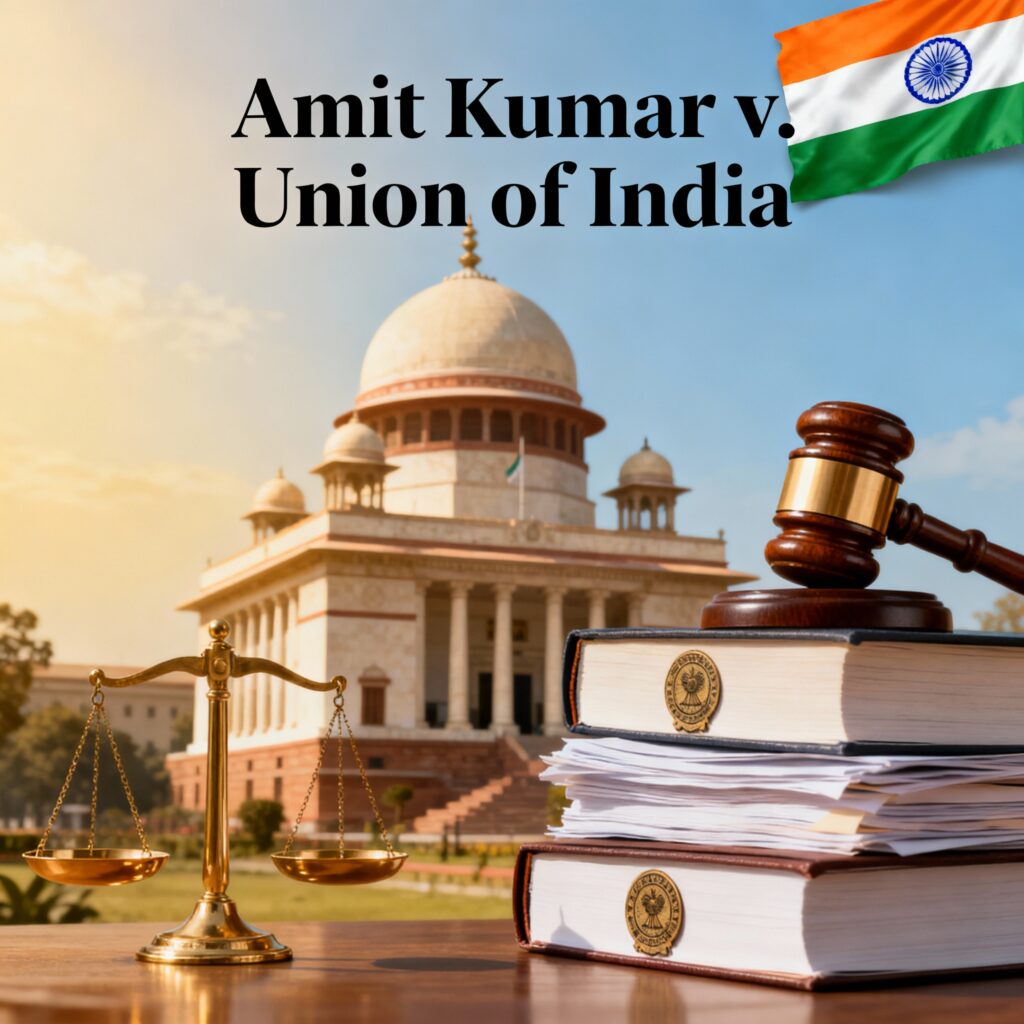Published On: 24th October, 2024
Authored By: Abhinav Mishra
BANARAS HINDU UNIVERSITY
|
CITATION |
(2014) 7 SCC 547 |
|
APPELLANT |
Animal Welfare Board of India and Ors. |
|
RESPONDENT |
Union of India and Anr. |
|
BENCH |
M. Joseph J, Ajay Rastogi J, Aniruddha Bose J, Hrishikesh Roy J, C.T. Ravikumar J Ajoy Karpuram |
|
SECTIONS / ARTICLES |
Prevention of Cruelty to Animals Act, 1960 |
|
DATE OF JUDGEMENT |
May 18, 2023 |
Introduction:
- India is famed for its rich and diverse culture. The Southern part of India, in particular, is diverse in terms of culture and hosts many festivals. These festivals are often celebrated with various rituals.
- In southern India, a controversy arose over Jallikattu, a traditional Bull-taming sport held in Tamil Nadu during the Pongal festival. This sport involves participants attempting to grab the hump of a bull and hold on to it while the bull tries to escape. Concerns related to animal welfare emerged, leading to debates about its practice and regulation.
- Jallikattu has ancient roots, dating back approximately 2000 years. It is believed to have originated as part of the Pongal celebrations in Tamil Nadu. The term “Jallikattu” evolved from a simple event to a competitive sport. However, concerns developed regarding the safety of the participants and the treatment of the Bulls, resulting in legal battles and debates about its practice.
- The word “Jallikattu” is derived from the Tamil words “Calli” meaning coins, and “pan” meaning a package[1]. Historically, coins were tied to the horns of bulls, and participants attempted to retrieve them. Jallikattu held cultural significance, symbolizing bravery and valor, and was revered across the Madurai, Tiruchirappalli, Theni, Pudukkottai, and Dindigul districts of Tamil Nadu, known collectively as the Jallikattu belt.
- A five-judge bench of the Supreme Court upheld amendments made by the legislatures of Tamil Nadu, Maharashtra, and Karnataka to the Prevention of Cruelty to Animals (PCA) Act, 1960, allowing such sports. The Supreme Court overruled a previous decision made by Justice K.S. Radhakrishnan and Justice Pinaki Chandra Ghose[2].
Facts:
- The central facts of this case focused on the traditional sport of Jallikattu. Beyond its legal implications, the Jallikattu case ignited discussions about cultural traditions and the ethical treatment of animals.
- The Animal Welfare Board of India filed a writ petition in the Supreme Court of India, raising concerns about the treatment of Bulls during Jallikattu events. The Board contended that this practice constituted cruelty to animals and violated the Prevention of Cruelty to Animals Act, 1960.
- The Board argued that using Bulls in such events subjected them to unnecessary pain and suffering, which was against the provisions of the Prevention of Cruelty to Animals Act, 1960.
- The Jallikattu case also brought up a fundamental question about balancing cultural and traditional practices with the prevention of cruelty to animals. The Court needed to determine whether the cultural significance of the sport justified any exceptions or regulations regarding animal welfare concerns.
Issues:
- Can Jallikattu be protected as a conventional and cultural practice?
- Is the Tamil Nadu Amendment contrary to the Supreme Court’s ban on Jallikattu in Nagaraja v. Animal welfare Board of India?
- Does Jallikattu violate the Prevention of Cruelty to Animals Act, 1960?
- Did the President assent to the information without sufficient information?
- Does the Amendment violate the Rights to Equality and life of Animals?
Arguments:
Petitioner’s arguments:
- The petitioners in the Jallikattu case primarily focused on the prevention of Cruelty to Animals asserting that such should be banned or regulated to ensure its compliance with legal standards for Animal welfare.
- The primary argument of the petitioners was that the involvement of Bulls in such events amounted to Cruelty towards them and argued that it was a violation of the Prevention of Cruelty to Animals Act, 1960.
- The petitioners argued that the manner in which Jallikattu was conducted was in question against the specific provisions of the Prevention of Cruelty to Animals Act and contended that these practices were required to be brought within the line of legal boundaries.
- The petitioners emphasized the importance of safeguarding Animals and asserted that cultural and traditional practices should not override the fundamental duty of society towards Animals.
- The petitioners looked up for judicial intervention to deal with the concerns related to Animal cruelty and contended for the interpretation of provisions for the prevention of cruelty to Animals.
- Also, keeping in mind the cultural significance of Jallikattu, the petitioners argued that the state should determine the balance between preserving cultural practices and upholding animal welfare.
Respondent’s Arguments:
- The Respondents argued in favor of the cultural and traditional significance of Jallikattu as well as for preserving indigenous breeds of cattle.
- The Response claimed that Jallikattu promoted the conservation of native cattle breeds, namely Kangayam and Pulikulam, and hence contributed to biodiversity.
- The Respondents contended that Jallikattu helped in the economic growth of the rural areas in which it was performed and contributed to the income of bull owners and locals.
- The Respondents argued that the ban on Jallikattu directly or indirectly impacted the livelihoods of all those associated with the event.
Judgement:
The Five-judge Bench in 2018 overruled the previous order by the previous Bench in 2017 which allowed Jallikkattu and such other sports and stated that “The Amendment Act substantially reduced pain and cruelty to the participating animals and any violation of the statutory law would attract the penal law”
Conclusion:
- In conclusion, India’s current animal laws are insufficient to penalize those guilty of animal cruelty and do not meet contemporary needs. For improvement, India can look to Austria, renowned for its stringent animal welfare laws, which include penalties ranging from $2,420 to $18,160 for extreme cruelty[3]. In India, the most common forms of cruelty include beating, incarceration, and maiming, with nearly 70% of cases going unnoticed by the public and media. This widespread cruelty causes immense suffering and mental agony for animals.
- India’s outdated animal laws, dating from the British era, impose trivial fines, such as Rs 50, reflecting a disregard for animal life. A 2021 draft proposal suggests significant amendments to the PCA Act, 1960, including fines up to Rs 75,000 and imprisonment up to five years for various offenses. It is crucial to legislate stricter laws and increase monetary penalties to protect animal lives.
However, strict laws alone are not enough. Education on kindness, morality, compassion, and respect for animals should be imparted to children. The Supreme Court of India mandated the establishment of State Animal Welfare Boards in 2008, but compliance and proactive measures are still needed. Recognizing that animals also have the right to life, efforts should be made by citizens and governments to ensure a cruelty-free world for animals.
References
[1] Jallikattu: An ancient sport caught between culture and law, tradition and modernity, religion and morality, Outlook India (2024), https://www.outlookindia.com/national/jallikattu-how-an-ancient-sport-is-caught-between-culture-and-law-tradition-and-modernity-religion-and-morality-news-249233 (last visited Jun 13, 2024).
[2] SC upholds validity of jallikattu, https://vajiramias.com/article/sc-upholds-validity-of-jallikattu/64670ccec302e758e40e56ea/ (last visited Jun 13, 2024).
[3] Tough animal rights laws enacted in Austria, NBCNews.com (2004), https://www.nbcnews.com/health/health-news/tough-animal-rights-laws-enacted-austria-flna1c9447499 (last visited Jun 14, 2024).




